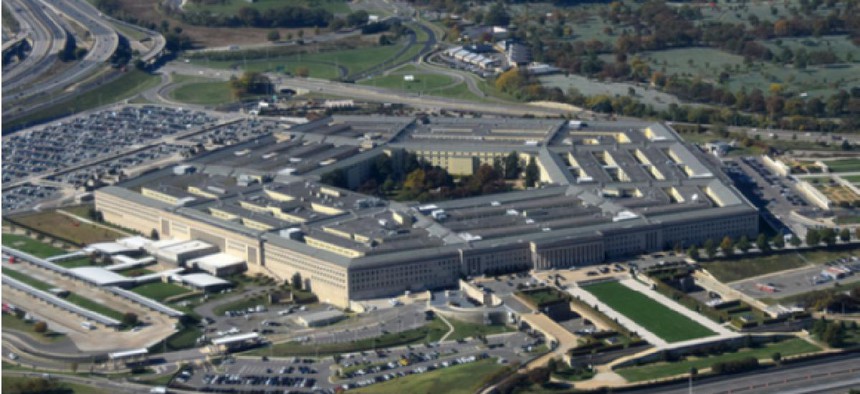Can JADC2 fly without budget reform?

Tim Grayson, the director of the Defense Advanced Research Projects Agency's Strategic Technology Office, said there's a risk that "monolithic platforms get replaced with monolithic architectures."

The Defense Department's plan to seamlessly connect its communications, platforms, systems and sensors through Joint All Domain Command and Control (JADC2) could be thwarted without real budget reform.
Tim Grayson, director of the Defense Advanced Research Projects Agency's Strategic Technology Office, said that preparing for future battles means "disaggregating" monolithic platforms into distributed capabilities that can adapt and fit together to deliver whatever effects are needed for a mission.
"We're going to disaggregate: Let the platform with the best sensor for a job do what it does best, let the platform with the best weapon for a job do what it does best, and have the networks to connect them. And it's an oversimplification, but I would argue that this is where the JADC2 mindset is today, which is actually exciting," Grayson said during a virtual July 20 Mitchell Institute event.
But there's a risk, he said, that those same "monolithic" platforms could be replicated if the acquisition process doesn't change: "We're keeping our eye on what I view is a really, really serious risk depending upon how JADC2 plays out -- that the monolithic platforms get replaced with monolithic architectures."
Grayson noted that the Army's failed Future Combat Systems, which attempted to be a system of systems using innovative technologies connected by a wireless network, was an example of that.
"We cannot have our classic, platform-centric, programs-centric, linear requirements and acquisition flow end up getting applied to these JADC2-like architectures -- the way we develop platform programs today," Grayson said.
"Instead, under mosaic warfare, we want to bust up monolithic architectures, not rely on any one architecture, any one widget, any one standard, any one network, and instead be able to say, 'What does the warfighter need today?'"
But there's another problem: Many of the technologies DARPA develops aren't fielded unless they're connected to a program of record, something that integration technologies key to making JADC2 don't necessarily have.
"A lot of the tools that we're building don't need further development like you normally would, going from [Science & Technology] into production, they just need to be used," Grayson said, noting that the agency has a portfolio of approximately 20 technology programs across different areas that are meant to provide "just-in-time integration to meet mission needs" but they don't leave the lab.
"Our real big challenge now is how to transition those. We don't have a nice, clean-cut program office where we can take our tools and put them directly into a classic, conventional program of record. They're not designed to do those kinds of things, they're enabling infrastructure."
It's an issue that has become increasingly discussed in Congress with many lawmakers entertaining the idea of overhauling the Planning, Programming, Budgeting, and Execution process.
Roger Zakheim, director for the Ronald Reagan Presidential Foundation and Institute, said programs of record "block new ideas and drive inertia and ultimately waste," adding that inefficiencies found in the programs should be reinvested in research and development efforts.
"The program of record is the single most -- I think, the biggest obstacle towards finding savings and introducing new capabilities. It hasn't been revisited in decades," Zakheim told the House Armed Services Committee on July 20.
"It's mind-boggling that we have a $715 billion budget and we're using a budget process that comes from the 1960s … that doesn't account for any changes in real time," Zakheim said, adding that the system "needs to be radically reformed."
House Armed Services Committee Chairman Adam Smith agreed, saying the committee planned to meet with Mike McCord, DOD's comptroller, to discuss that issue.
"Innovation is happening a lot faster and we're losing out on a lot," Smith said. "We do the R&D, we develop the technology, and it's ok. Two years from now we'll tell you whether or not we're going to buy it and … it disappears."
Smith said convincing appropriators to back budget process reform would be a challenge, but he added, "here is where I think congressional control is undermining what we need to do to really spend money efficiently at the Pentagon."



